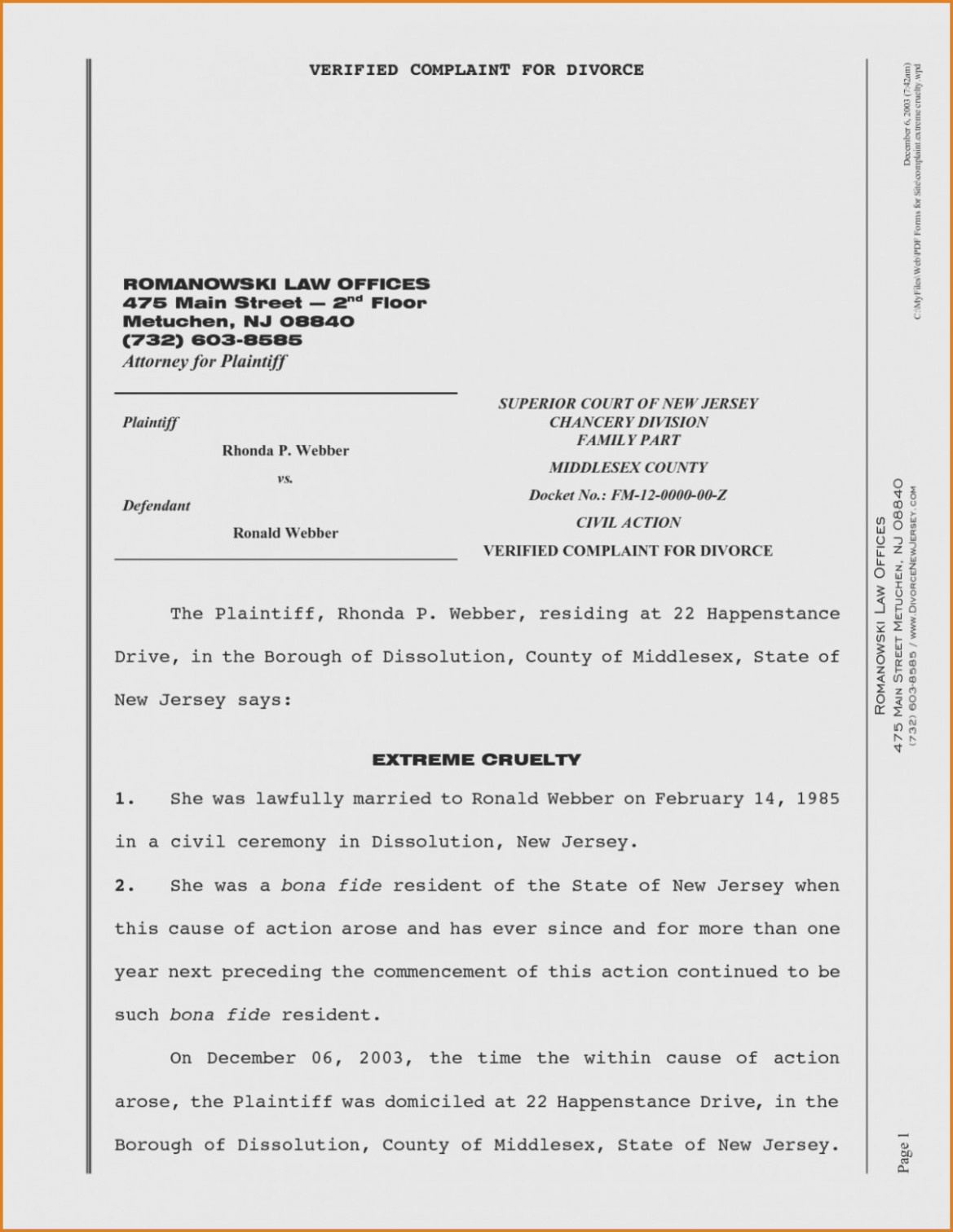DIY Divorce Paperwork: Simple Steps to Freedom

In today's fast-paced world, managing personal affairs efficiently is crucial, especially when it comes to matters of the heart. The process of divorce can be daunting, emotionally challenging, and often complex. However, for those looking to take control of their future, a DIY divorce can be a viable and cost-effective option. This blog post will guide you through the essential steps required to file for divorce on your own, ensuring a smoother transition towards a new chapter in your life.
Understanding the Basics of Divorce

Before you embark on the journey of filing for divorce, it’s crucial to understand what this entails:
- Grounds for Divorce: These vary by state, but common reasons include irreconcilable differences or fault-based grounds like adultery, abuse, or abandonment.
- Residency Requirements: Each state has specific requirements regarding how long you must reside there before filing for divorce.
- Types of Divorce: No-fault, at-fault, and uncontested vs. contested.

Step-by-Step Guide to Filing DIY Divorce Papers

1. Determine Eligibility

Check if you meet the residency requirements of your state and if your divorce would be considered uncontested. An uncontested divorce means both parties agree on all issues, which simplifies the process significantly.
2. Gather Necessary Documents

Here’s what you’ll typically need:
- Marriage certificate.
- Financial statements from both parties.
- Recent tax returns.
- List of all assets and liabilities.
- Any prenuptial agreement if applicable.
3. Fill Out Divorce Forms

You can find these forms on your state’s court website or at your local courthouse:
- Petition for Divorce.
- Summons (to serve to your spouse).
- Financial Affidavit.
- Child Custody and Support Agreement (if applicable).
📝 Note: Accuracy in these forms is crucial to avoid delays or rejections from the court.
4. Serve the Divorce Papers

This step is critical as it legally informs your spouse of the divorce filing:
- Use a professional process server.
- Have a friend or family member serve the papers, but be aware of potential conflicts or bias.
- In some states, mailing can suffice if you’re unable to personally serve your spouse.
5. File the Papers

Submit your completed forms and pay any necessary filing fees. Here’s what happens next:
- The court clerk will file your papers and give you a case number.
- Your spouse has a certain period (usually 20 to 30 days) to respond.
6. Await the Response

If your spouse agrees with the terms, the divorce can proceed to finalization. If contested, mediation or court hearings might be necessary.
7. Finalization

Once all is agreed upon or decided by the court, your divorce will be granted. You’ll receive:
- A divorce decree.
- Possibly a child custody agreement if children are involved.
- Property division orders.
🔔 Note: If there are disagreements, it might be time to seek legal advice to ensure your interests are adequately represented.
Additional Tips for a Smooth DIY Divorce

- Communication: Keep lines open with your spouse to ensure all issues can be settled amicably.
- Accuracy: Double-check all documents for correctness to avoid court delays.
- Mediation: Consider mediation to resolve disputes without going to court.

By carefully following these steps, you can navigate the divorce process without the hefty cost of hiring lawyers. Remember, this approach is best suited for couples with straightforward divorces where significant disagreements are absent.
FAQ Section

Can I file for a DIY divorce if my spouse doesn’t live in the same state?

+
Yes, you can file for divorce in the state where you reside if you meet the residency requirements, but serving the papers might require special considerations or legal service.
What if my spouse refuses to sign the divorce papers?

+
If your spouse refuses to sign, you can still proceed with the divorce, but it will likely become a contested divorce, requiring court intervention to decide unresolved issues.
How long does a DIY divorce take?

+
The time frame can vary, but an uncontested divorce might take 3 to 6 months, while a contested one can take much longer.



